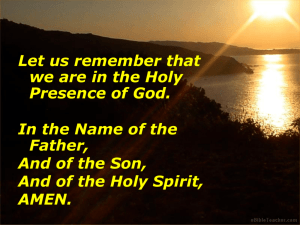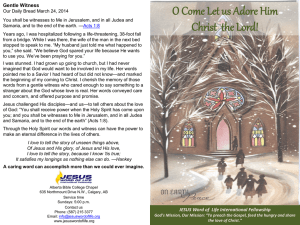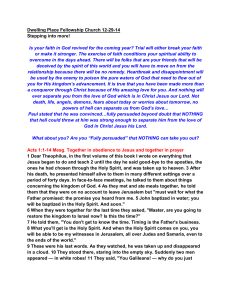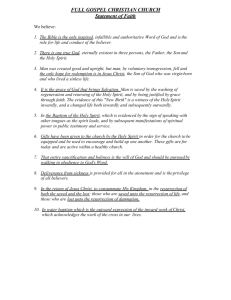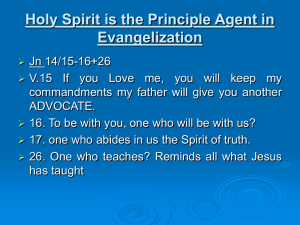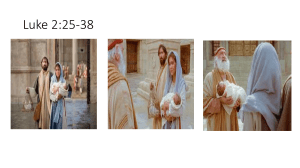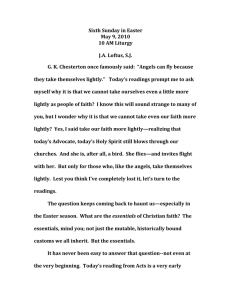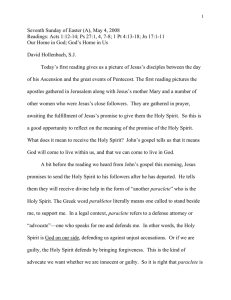6 Sunday of Easter May 5, 2013 10 AM & 12 noon liturgies
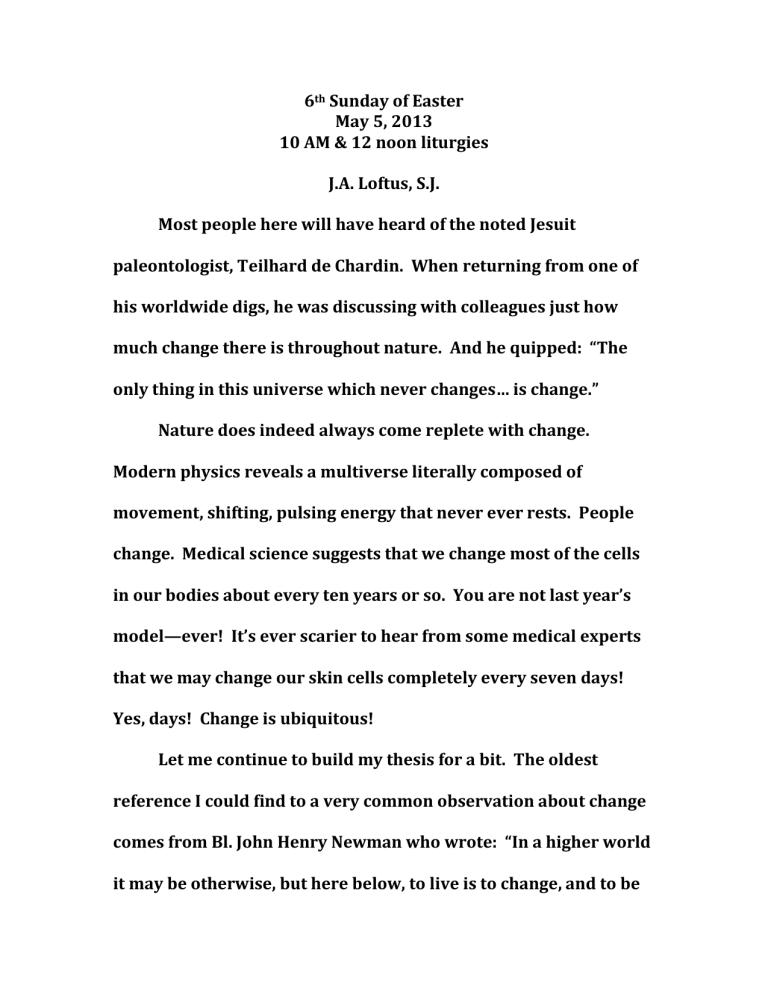
6 th Sunday of Easter
May 5, 2013
10 AM & 12 noon liturgies
J.A. Loftus, S.J.
Most people here will have heard of the noted Jesuit paleontologist, Teilhard de Chardin. When returning from one of his worldwide digs, he was discussing with colleagues just how much change there is throughout nature. And he quipped: “The only thing in this universe which never changes… is change.”
Nature does indeed always come replete with change.
Modern physics reveals a multiverse literally composed of movement, shifting, pulsing energy that never ever rests. People change. Medical science suggests that we change most of the cells in our bodies about every ten years or so. You are not last year’s model—ever! It’s ever scarier to hear from some medical experts that we may change our skin cells completely every seven days!
Yes, days! Change is ubiquitous!
Let me continue to build my thesis for a bit. The oldest reference I could find to a very common observation about change comes from Bl. John Henry Newman who wrote: “In a higher world it may be otherwise, but here below, to live is to change, and to be
perfect is to have changed often.” The American poet e.e. cummings phrases it this way: “To grow is to change; to grow often is to have changed much.” And to add the icing on this cake, none other than Winston Churchill once observed in a similar vein: “To improve is to change, to be perfect is to change often.” May I presume you get the drift?
Whether it is just life itself that invites change, or growth, or improvement in life, change is the norm. And yet very few of us like change. Nor do many of the institutions we belong to embrace change easily. Change is always unsettling. Change always carries risks. The little voice in all of us whispers constantly: “You can’t go around changing everything; some things are essential , are permanent, are too important to mess with.
The stage is now set. Let’s turn our attention to one of our own beloved institutions and watch how in its earliest period, in fact in its very earliest period when things were still so fragile, that community embraced startling change so full of hope, and trust, and faith.
Today’s first reading from the Acts of the Apostles is a truly amazing story. It is foundational for our church—and also says
2
something terribly important for us all individually. It describes the very first “ecumenical” Council, now known by most as the
Council of Jerusalem. The crisis facing them is very real. Is the observance of the Mosaic Law required for salvation in the new dispensation? For Jews the answer can only be a profound yes.
And they are almost all Jews gathered in Jerusalem. Without the traditions, centuries old and revered, and without the constant teaching of the Rabbis, there can be no religion, no faith. All this is obvious! Tradition and scriptures must always be honored.
Let’s pause for a moment and scan today’s gospel. Jesus introduces his disciples to an Advocate, a Paraclete, a Holy Spirit whom God will send to them. That Holy Spirit will do two things:
She “will teach you everything,” and “remind you of all I told you.”
So “do not let your hearts be troubled or afraid.” And Jesus concludes: so when this happens you may believe it.
There is a New Jerusalem coming down out of heaven from
God. And it gleams with the splendor of God. There is so much yet to change! (Cf. Revelations reading)
Back to our story! Into Jerusalem comes that troublesome
Holy Spirit again. Peter has already been prompted by the Spirit to
3
baptize Cornelius and his whole family without any commitment to the Mosaic Law. And here again that Spirit seems to speak in a strangely new way. In the face of so many converts to the new group who are not Jews, the Spirit speaks. “It is the decision of the
Holy Spirit, and of us, not to place any further burden upon you….”
I so prefer the NRSV translation here that has it: “ It seemed good to the Holy Spirit and to us….” That seems a much more deliberative, reflective and modest claim. It just seems good at this time to the
Holy Spirit and to us….” It is also open to further revision.
And it does change again! What seemed essential changes. I bet it’s been a long time since any of us have had to worry about eating strangled meat, or meat offered to idols. The apparently essential changes again. “Here below, to live is to change, and to be perfect is to have changed often.”
So for now, what remains essential? That we live in peace with each other? No, that’s too modest a claim on us. What is essential is that we love one another—in all our diversity, and strangeness, and peculiarity: Liberal or conservative, fundamentalist or libertarian, male and female, gay and straight, and on goes the marvelous list of our at times perverse diversity.
4
It is essential to receive Christ’s peace, His enduring gift to us all—not just to some of us. It is essential to know and trust the
Advocate Jesus leaves behind in the church. And it is essential that we not let our hearts be troubled—at least not about change. It will happen again and again and again. Let the openness happen inside of each of our hearts as well as in our church. “To grow is to change; to grow often will be to have changed much.” Peace!
5

